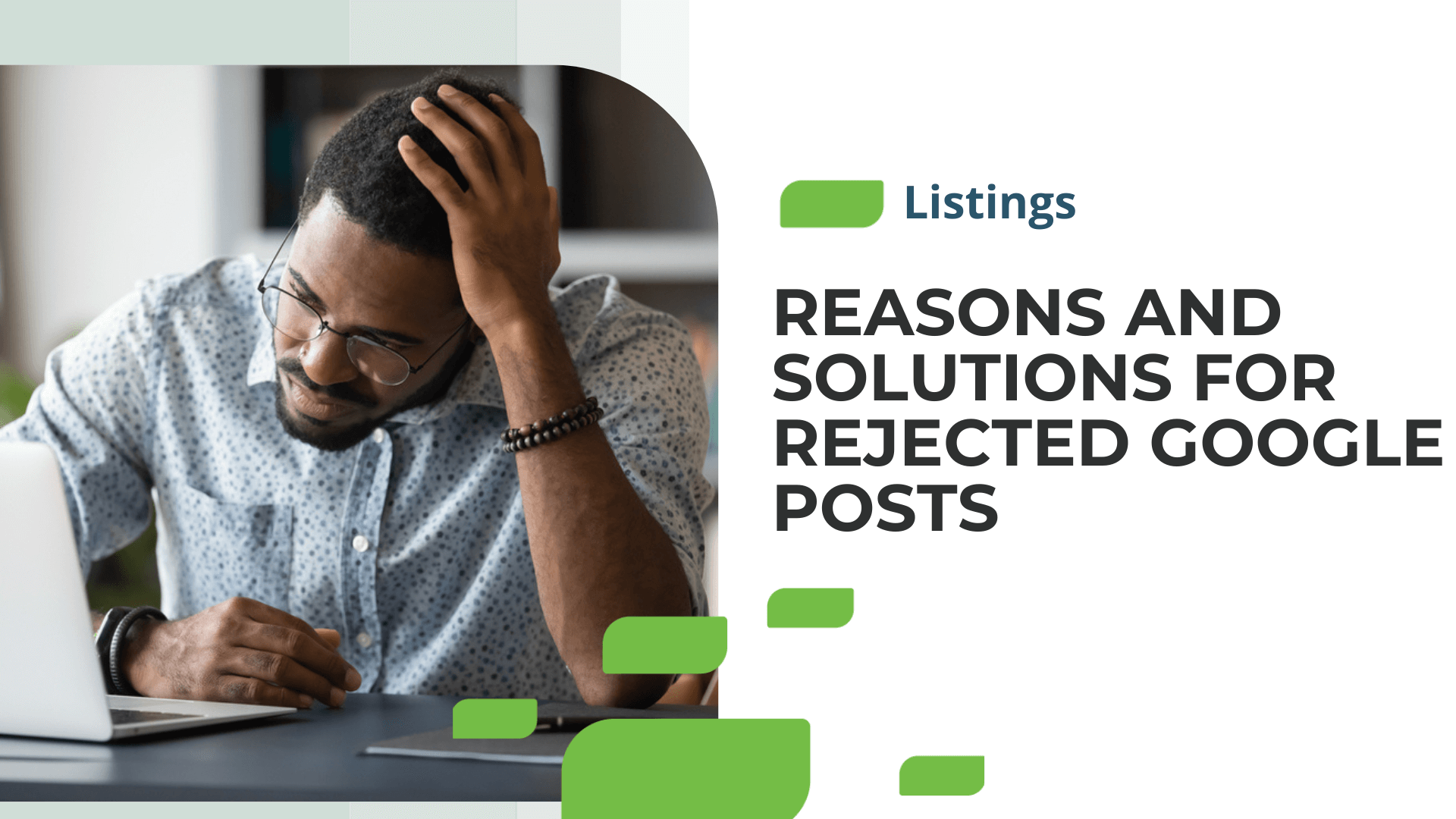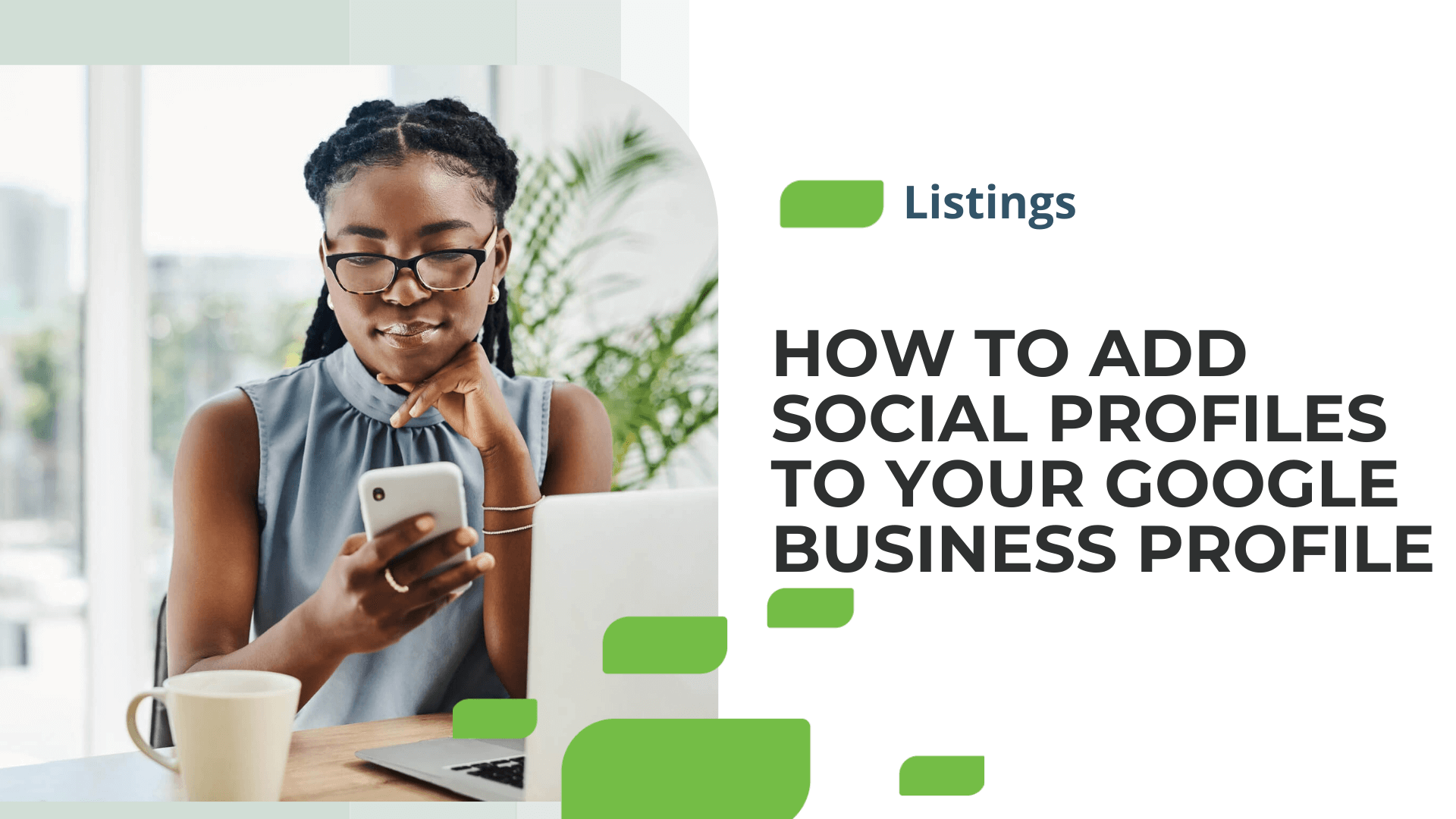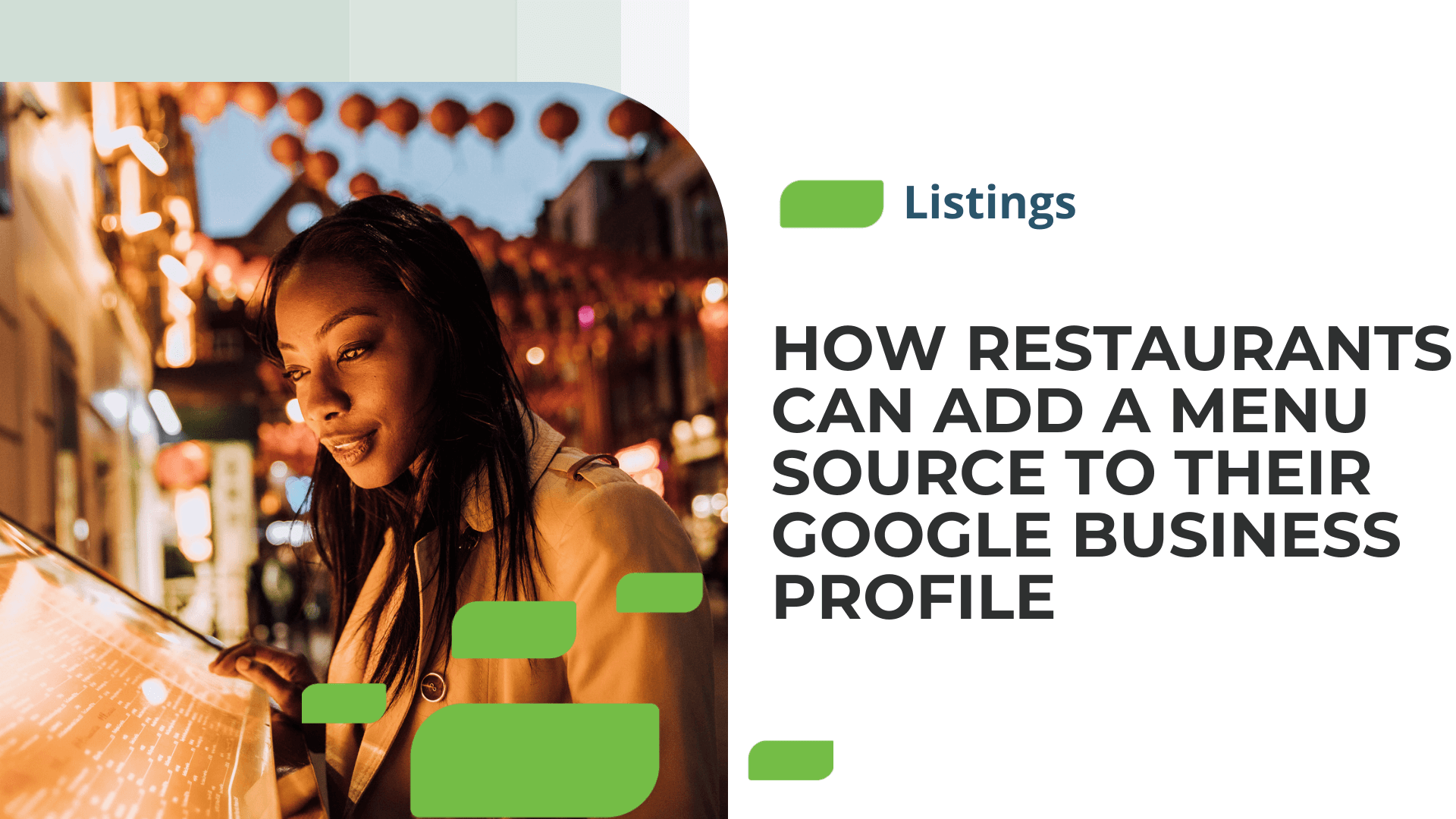What to Do if Google Rejects Your Google Posts?

What to Do if Google Rejects Your Google Posts?
If you’re unfamiliar with Google Posts, they are status updates businesses can post on their Google Business Profile (GBP), formerly known as Google My Business, that directly communicate relevant and timely information to their customers. Google Posts can contain text, photos, and/or videos.
There are four types of Google Posts: What’s New, Event, Offer, and COVID-19 (considered temporary). Read our Ultimate Guide to Google Posts article for more details on optimizing Google Posts.
Sometimes though, Google Posts get rejected. In this article, we’ll explain why your Posts might get rejected and how to fix them.
Why Your Google Post is Getting Rejected
Google Posts are meant to communicate important and timely information to your customers. However, they need to adhere to Google’s content policy. Here’s a brief version of what’s not allowed:
Phone number:
Google Posts can’t include phone numbers. Phone numbers should be available on your Business Profile or website. You can attach a “call now” button to your post though.
Spammy content:
Google’s algorithm doesn’t like misspellings or gibberish in the text, nor does it allow for a poor image or video quality. The content needs to be relevant to the business to avoid getting rejected.
Inappropriate content:
Google strictly prohibits hateful, discriminatory, or harassing content. Your post also cannot contain sexually suggestive or explicit material, nor profanity and offensive language or gestures.
Sensitive information:
Google respects the privacy of its users. Therefore, you cannot include links to personal information, contact info, or other confidential information such as personal financial statements or government-issued IDs.
Hotels:
It’s worth noting that hotels can’t create “offer” Posts with links to discounts, special offers, or other promotional deals.
Other prohibited content includes:
- Regulated products such as alcohol, tobacco, gambling, FinServ, pharmaceuticals, health or medical devices
- Child exploitation
- Terrorist content
- Misrepresentation or misleading and false claims
- Support links (gift cards and donation campaigns are still allowed)
For more detailed information, carefully read through Business Profile Posts content policy.
Google Posts Rejected Fixes
Your Google Post got rejected, now what? First, we recommend you double-check that your post doesn’t violate any of the above guidelines or Google’s content policy for Business Profiles.
Sometimes, more technical issues occur. Like anything that lives online or on a search engine, your Google Profile is prone to glitches or issues. If you adhere to Google’s content policy and believe a technical issue is occurring, searching for or starting a post about the issue on the Local Search Forum or Twitter is best.
Other options are to reach out to the Google Business Profile Help Community with questions or concerns you might have. Volunteers with Google Business Profile expertise manage the community.
Lastly, you can reach out to Google directly via their Business Profile Help Center. They can help you resolve the issue or understand why your post was rejected.
Managing Multiple Google Business Profiles
If you’re a multi-location or franchise business, it’s even more challenging to manage Business Profiles for 100s or 1,000s of business locations. Consider utilizing SOCi Listings to effectively manage your Business Profiles and across other listings like Facebook, Apple, or Yelp.
SOCi Listings will help you dominate local SEO and search efforts and improve the user experience at each listing by removing duplicate listings and ensuring the content is up-to-date and accurate. SOCi’s expertise and customer service teams can also help you manage and fix rejected Posts.




